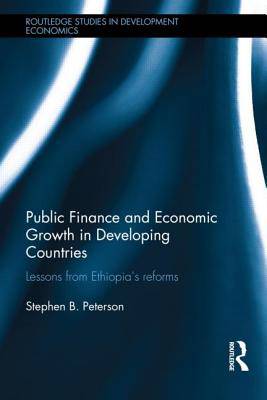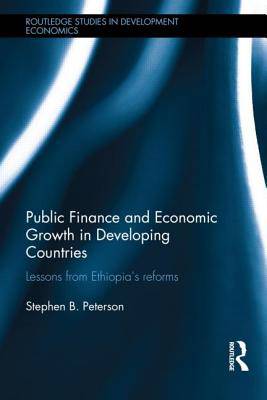
- Retrait gratuit dans votre magasin Club
- 7.000.000 titres dans notre catalogue
- Payer en toute sécurité
- Toujours un magasin près de chez vous
- Retrait gratuit dans votre magasin Club
- 7.000.0000 titres dans notre catalogue
- Payer en toute sécurité
- Toujours un magasin près de chez vous
Public Finance and Economic Growth in Developing Countries
Lessons from Ethiopia's Reforms
Stephen PetersonDescription
Public finance is crucial to a country's economic growth, yet successful reform of public finances has been rare. Ethiopia is an example of a country that undertook comprehensive reform of its core financial systems, independent of the IMF and the World Bank, and successfully transformed itself into one of the fastest-growing economies in Africa.
With Ethiopia's twelve-year reform as its guiding case study, this book presents new analytical frameworks to help governments develop better financial reforms. It shows in detail how four core financial systems--budgeting, accounting, planning, and financial information systems--can be reformed. One of the principal findings presented is that governments must establish basic public financial administration before moving to more sophisticated public financial management. Other key findings include the identification of four strategies of reform (recognize, improve, change, and sustain), the centrality of ongoing learning to the process of reform, and the importance of government ownership of reform.
This book will be of interest to researchers and policymakers concerned with public finance, developmental economics, and African studies.
Spécifications
Parties prenantes
- Auteur(s) :
- Editeur:
Contenu
- Nombre de pages :
- 360
- Langue:
- Anglais
- Collection :
Caractéristiques
- EAN:
- 9781138850033
- Date de parution :
- 29-04-15
- Format:
- Livre relié
- Format numérique:
- Genaaid
- Dimensions :
- 157 mm x 231 mm
- Poids :
- 657 g

Les avis
Nous publions uniquement les avis qui respectent les conditions requises. Consultez nos conditions pour les avis.






